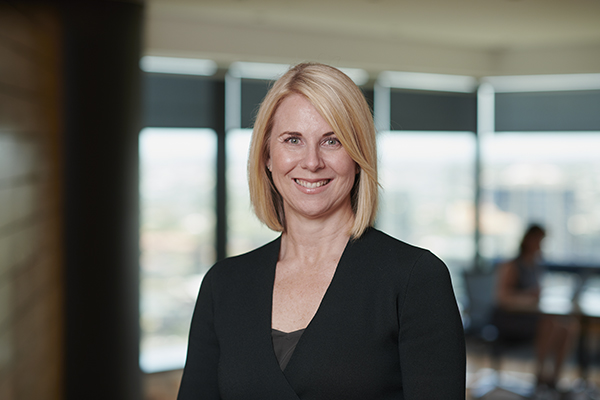Day 1 – Monday 5 August
Senior Counsel Assisting, Peter Gray QC, outlined the focus for the Brisbane hearing was to be an exploration of the way aged care providers are regulated by the Commonwealth and the efficacy of their monitoring and sanctioning processes. He then introduced the first case study which dealt with the recent cessation of care services at Earle Haven Retirement Village. The first seven witnesses Cary Strong, Queensland Ambulance Service; Karen Parsons, HelpStreet Global; Telecia Tuccori, Earle Haven; Karen Heard, External Consultant to People Care Pty Ltd; Arthur Lopes Miller and Bruce Walter Lang, People Care Pty Ltd; and Kristofer Andrew Bunker, HelpStreet Global, gave evidence in relation to the Earle Haven case study. Tracey Rees, from the Aged Care Quality and Safety Commission gave evidence about concerns raised as to the suitability of People Care Pty Ltd as an approved provider. The final witness, Anthony David Speed, an employee of the Commonwealth Department of Health then gave evidence on the application of the Aged Care Act 1997 (Cth) and the responsibilities and obligations owed by approved providers.
Day 2 – Tuesday 6 August
The second day of the Brisbane hearing opened with an examination of the regulatory response in 2018 and 2019 to MiCare Avondrust Lodge, the subject of a case study in the Cairns hearing. The first witness, Petronella Dorothea Neeleman, MiCare Ltd gave evidence about her experience managing four facilities as Executive Director at Avondrust. The second witness, Judith Raewynee Coombe, a nurse advisor with Ansell Strategic Pty Ltd detailed how she was appointed by MiCare Ltd to assist in resolving their non-compliance issues. Witnesses three, four, five and six, Catherine Theresa Rosenbrock, Regional Director of Quality Assessment and Monitoring for Victoria and Tasmania at the Aged Care Quality and Safety Commission; and Assessors, Gilda D'Rozario, Susan Waters and Colette Marshall, gave evidence as a panel, outlining the assessment process for determining Avondrust’s compliance in 2018 and 2019. Elsy Brammesan PSM, from the Commonwealth Department of Health, then explained her reasoning for imposing and subsequently lifting the sanction on Avondrust. The final witness, Peter O'Brien, Compulsory Reporting Team Leader at the Department of Health, gave evidence of how the Department of Health responds to reports of suspected or alleged assault by employees of approved providers.
Day 3 – Wednesday 7 August
Day three of the Brisbane hearing began with Gwenda Darling speaking about her experience as a recipient of a home care package and the difficult wait she continues to endure for a higher level package. Peter O'Brien, Compulsory Reporting Team Leader at the Department of Health continued his evidence, detailing the process of managing incident reports and dealing with allegations of assault and abuse. Anthony David Speed was called upon once more to describe his opinion of the importance and efficacy of the Service Provider of Concern Committee. The fourth witness, Sarah Jane Holland-Batt gave direct evidence about her father's experience in residential aged care and her experience dealing with the Aged Care Complaints Commission (ACCC). Professor Ron Paterson ONZM, of the University of Auckland, concluded the day advocating for responsive regulation that focused on the way regulation can be used to lift the quality of care.
Day 4 – Thursday 8 August
The fourth day of the Brisbane hearing continued to hear evidence from government regulators, with the Executive Director of Operations Division at the Aged Care Quality and Safety Commission, Ann Wunsch, opening proceedings. She stated that since the Aged Care Quality Agency had been replaced, significant operational changes have occurred which has moved the agency into a more responsive organisation. Amy Laffan, from the Department of Health, then spoke to the Aged Care Regulatory Design Implementation before Graeme Head, the NDIS Quality and Safety Commissioner outlined the operational processes that govern the management of the NDIS system. Beverley Jean Johnson was the fourth witness for the day, detailing her experience living in an aged care facility. The final witnesses, Natalie Siegel-Brown, Queensland Public Guardian and Geoffrey Francis Rowe, from Aged and Disability Advocacy Australia gave evidence together about the systemic failure to recognise basic human rights amongst the elderly and those living in many aged care facilities.
Day 5 – Friday 9 August
The final day of the Brisbane hearing began with Debra Barnes giving direct evidence about her experience with the Aged Care Quality and Safety Commission. Ms Barnes had asked the Aged Care Quality and Safety Commission to investigate her mother’s death which occurred while being cared for in a residential facility however, they declined to investigate. Shona Reid, an employee responsible for Performance Education and Policy at the Aged Care Quality and Safety Commission, then spoke to the Aged Care Quality and Safety Commission's complaints resolution process. Debora Picone AO, the Commissioner of the Australian Commission on Safety and Quality in Healthcare explained the reporting procedures for public and private hospitals and consumer expectations of the aged care sector. Professors John and Valerie Braithwaite of the Australian National University then gave joint evidence on the need for the aged care industry to shift toward a form of relational regulation as opposed to regulatory ritualism. Senior Counsel Assisting concluded the hearing by summarising the week’s evidence and stating that the current regulatory model of aged care falls short of best practice standards and is insufficiently responding to risks.
The Royal Commission will resume in Melbourne on 9 September 2019 and will inquire into younger people in residential aged care, with a focus on impact, drivers and appropriateness of allocation policy as well as how to best support young people wishing to leave residential aged care.







